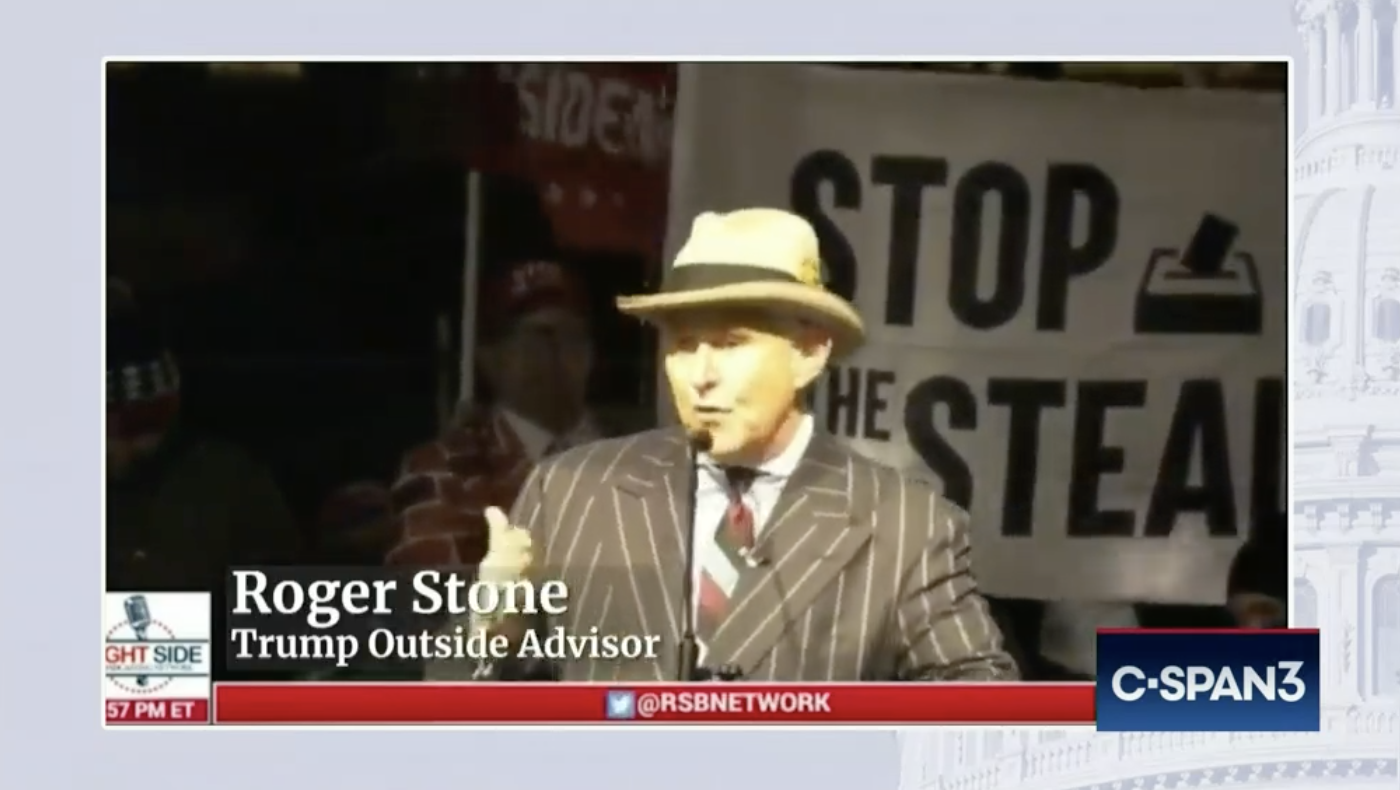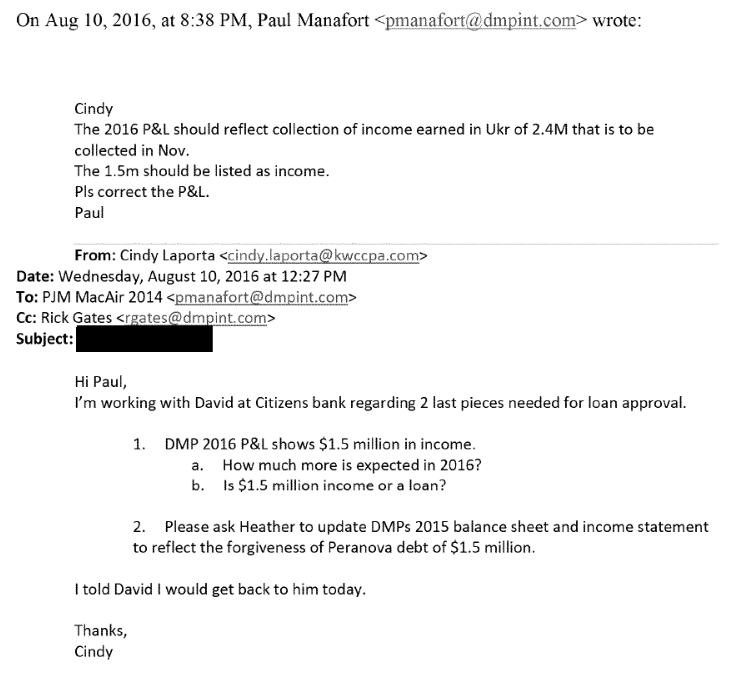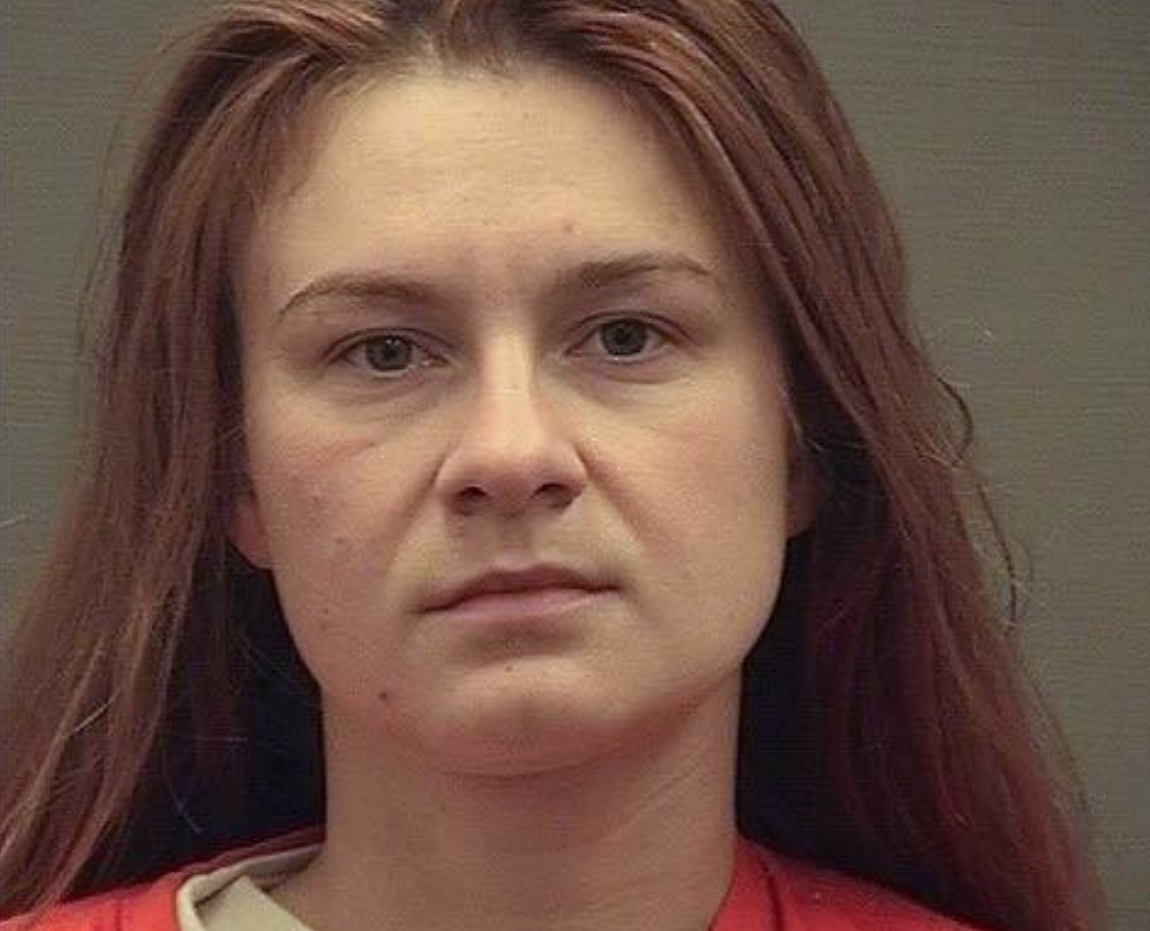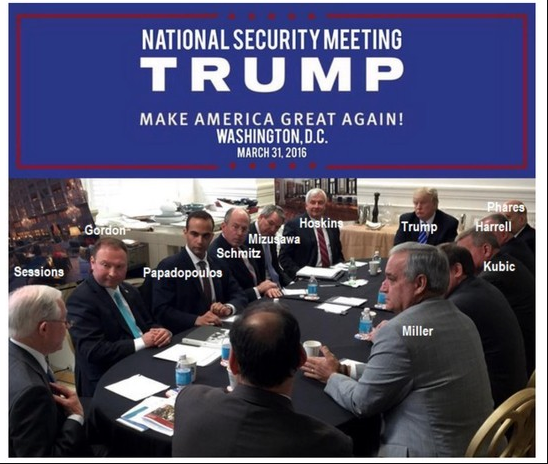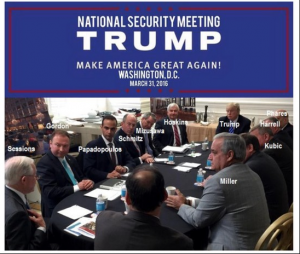In this post, I laid out the difference between two laws criminalizing foreign agents of influence, 22 USC 611 et seq. (FARA) and 18 USC 951. Paul Manafort is charged with the former; Rick Gates, Mike Flynn, and Sam Patten have also all pled guilty to FARA related crimes; Mariia Butina is accused of the latter.
I think, particularly as Mueller’s investigation begins to put real teeth in FARA (and as nation-state spying hides under new kinds of cover and funding arrangements), the border between the two crimes will become increasingly tenuous. A comparison of Butina and Manafort shows some of the ways that’s clear.
Butina’s lawyer pitches her actions as lobbying
In response to her charges, her attorney Robert Driscoll has repeatedly denied she’s an agent of Russia, not by denying she did what Aleksandr Torshin instructed her to, but by claiming that hers is just a regulatory filing case.
“This is not an espionage case, this is not a spy case, this is a regulatory filing case,” in which Butina didn’t file the correct paperwork with the Justice Department, Driscoll told Robnson in arguing why she should be freed pending trial.
“She’s not an agent of the Russian Federation,” Driscoll told reporters after the hearing.
In a bid to overturn Magistrate Deborah Robinson’s decision to deny Butina bail, Driscoll minimizes the Russian’s activities as “going to dinners among intellectuals and foreign policy wonks to discuss U.S.-Russia relations, attending two National Prayer Breakfasts, and booking hotel rooms at the Washington Hilton, if true, is anything but an ‘obvious’ danger to the public.” He argues, “the allegations do not involve spying, tradecraft, classified information, or any other hallmarks of an espionage case.” To rebut any claim of covert operation, Driscoll points to the fact that one of the actions in her indictment — a dinner hosted by her unindicted co-conspirator, George O’Neill, just after the National Prayer Breakfast — was hosted by O’Neill and written up in the press (one of two stories he cited was written by O’Neill).
She is accused of arranging dinners to promote better relations between Russia and the United States although the very dinner that is listed as a predicate act for her alleged crimes was written about in Time Magazine and the American Conservative—hardly covert activity—and, in actuality, was initiated, organized, and directed by an American citizen, not the Russian government.3
He argues that the government charged Butina with section 951 as a tactical move, to make it easier to prosecute political activity (I’m not a lawyer, but I’m virtually certain he mis-states what the materials say about exempting political activity, not least because, per other materials, section 611 can be a subset of a section 951 violation).
To distract from the frailty of its charges, the government reprises that Ms. Butina is charged under section 951 and not FARA. However, that charging decision alone contradicts the Justice Department’s own policies, and perhaps was made as an attempt to aggrandize her conduct and mischaracterize her innocent political interest as nefarious.
That is, the Department of Justice (“DOJ”) Criminal Resource Manual makes a distinction between section 951 and a FARA violation. It describes FARA under section 611 et seq. as requiring an agent of a foreign principal engaged in political activities to register. See U.S. Dep’t of Justice, United States Attorneys’ Manual 9-90.700 and 9-90.701; and see Criminal Resource Manual at 2062. It also discusses other federal statutes like section 951, which is “aimed at persons loosely called foreign agents” but specifically exempts section 951 from applying to “foreign agents engaged in political activities.” Id. In plain English, DOJ further notes among frequently asked questions that section 951 is only “aimed at foreign government controlled agents engaged in non-political activities.”5
The government’s April, 2018 search warrant sought evidence of a potential violation under FARA.
[snip]
[A]lthough such allegations are unfounded and untrue, and although the government’s searches revealed no hidden transmitters, wads of cash, counterfeit passports, and plane tickets back to Moscow, the government still decided to paper a case against Ms. Butina under section 951. This decision shows that the government desired to overcharge and inflate her conduct for tactical advantages versus act with restraint or, at a minimum, be consistent with the DOJ and National Security Division’s own publicized understanding of appropriate charges.
And Driscoll doesn’t even concede she violated FARA.
[F]or reasons only it is aware, the government has charged Ms. Butina under 18 U.S.C. § 951 rather than the Foreign Agent Registration Act (“FARA”), 22 U.S.C. § 611 et seq., which generally carries civil penalties and much less severe criminal penalties (for circumstances far more egregious than the facts alleged here). Much like a FARA case, the government does not allege that Ms. Butina undertook any independently illegal activities in the United States. The only thing that made her alleged conduct illegal, if true, is that she did not notify the Attorney General prior to undertaking it.
[snip]
At bottom, the government’s case appears to be a novel attempt to stretch 18 U.S.C. § 951 to cover the activities of a foreign national student under the theory that her communications (about non-classified public source material) with contacts in her home country made her an “agent” of that country. The serious charges against her should be viewed in that context, which makes this case distinctly different from a typical section 951, “espionage-like or clandestine behavior” case.4
The lobbying included in Butina’s alleged crimes
To some extent, Driscoll is right: the government’s description of the allegations against Butina does focus closely on activity that might fall under FARA’s political activities (though, as noted, he cites a DOJ statement that suggests sections 611 and 951 are mutually exclusive, when by my understanding sections 611 can be a part of 951).
Many of the activities Butina is alleged to have done involve things that might be classified as lobbying. In her arrest affidavit, DOJ describes how Butina, with help from Paul Erickson, identified a network of influential Americans, including the NRA, to whom she could pitch closer relations with Russia. George O’Neill helped Butina set up a series of “friendship and dialogue” dinners. A number of her activities, such a publishing an article in The National Interest, are precisely the kinds of things FARA attempts to provide transparency on. This is where Driscoll gets his claim that Butina only “arrang[ed] dinners to promote better relations between Russia and the United States.”
Butina was directed by Aleksandr Torshin
A number of the allegations would support either a FARA or 951 violation.
The affidavit makes it clear she was following the directions of Aleksandr Torshin, the Deputy Governor of Russia’s Central Bank and as such an official representative of the government.
On the night of the election, for example, she asked for orders from Torshin, “I’m going to sleep. It’s 3 am here. I am ready for further orders.” The two moved to WhatsApp out of Torshin’s concern “all our phones are being listened to.” It’s clear, too, she and Torshin were hiding the role of the Russian government behind her actions. When she sent a report on a conference to establish a dialogue with US politicians, she said it “must be presented as a private initiative, not a government undertaking.”
The government even presented proof that Butina’s actions were approved by people close to Putin himself.
On March 14, 2016, Butina wrote O’Neill that what DOJ calls a “representative of the Russian Presidential administration” had expressed approval “for building this communication channel,” suggesting she and Torshin had direct approval from Putin. “All we needed is <<yes>> from Putin’s side,” Butina explained to O’Neill.
With one exception, Driscoll largely offers bullshit in response to the government’s evidence she operated as a Russian government agent (indeed, his recognition that Butin advertised being Torshin’s special assistant on one of her business cards confirms that she continued to work for Torshin). He includes a letter of grad school recommendation for Butina for Columbia as proof of … it’s not clear what, particularly since Torshin includes his government affiliation on the letter.
Still: Paul Manafort was operating on behalf of a foreign government while Viktor Yanukovych remained in power, yet DOJ charged him with FARA, not section 951. The bar to meet foreignness under FARA is broader than it is under section 951, but lobbying for a foreign government can be sufficient to it. Yet Butina got charged under section 951, not FARA.
Paid by an oligarch
The exception to my claim that Driscoll offers little to rebut (in court filings — his statements to the press are another issue) that Butina was directed by the Russian government is the issue of her funding, which the government notes comes from an oligarch that Butina identified to the Senate Intelligence Committee as Konstantin Nikolaev.
Her Twitter messages, chat logs, and emails refer to a known Russian businessman with deep ties to the Russian Presidential Administration. This person often travels to the United States and has also been referred to as her “funder” throughout her correspondence; he was listed in Forbes as having a real-time net worth of $1.2 billion as of 2018. Immediately prior to her first trip to the United States in late 2014, Butina engaged in a series of text messages with a different wealthy Russian businessman regarding budgets for her trip to the United States and meetings with the aforementioned “funder.”
Driscoll points to this to disclaim a tie between her and the Russian state.
[T]he Russian Federation did not pay for her travel to the United States, her tuition, her living expenses, or make any payments to her at all.
This is actually an interesting point, because while FARA requires only that a person be working as an agent of a foreign principal (which might include, for example, an oligarch), section 951 requires that the agent be working on behalf of a foreign government. Butina no doubt still qualifies, given her tie to Torshin.
But particularly when comparing Manafort and Butina, both of whom worked at the border between laundered oligarch cash and government officials, the detail is of particular interest. If Russia outsources its intelligence operations to oligarchs (the Internet Research Agency’s Yevgeniy Prigozhin is another example), will that intelligence still qualify as spying under section 951?
In any case, thus far, the allegations against Butina and Manafort are fairly similar: both were hiding the fact that their political activities were backed by, and done in the interest of, Russian or Russian-backed entities.
The evidence for covert action
One area where Butina may go further than Manafort (at least for his pre-election work) is in the means by which she was trying to hide her work.
In spite of the great deal of publicity Butina made of her own actions — with all the pictures of her and powerful Republican men — the government affidavit also described Butina trying to set up (in her words) a “back channel” of communication with influential Americans. On October 4, 2016, Erickson emailed a friend admitting he had “been involved in security a VERY private line of communication between the Kremlin and key [Republican] leaders through, of all conduits, the [NRA]. The affidavit describes Butina telling Torshin that her Russia-USA friendship society” is “currently ‘underground’ both here and there.” When discussing the list of delegates to the 2017 National Prayer Breakfast with Erickson in late November, she said the attendees were seeking to establish a “back channel of communication.”
Manafort was trying to hide that the lobbying he paid for was done for Yanukovych’s benefit, but there’s no allegation his pre-election work aimed to set up a secret channel of communication between Yanukovych and Congress.
Of particular interest, given the parallel efforts on voter suppression from Roger Stone and the Russians, Butina floated serving as an election observer. Torshin argued that “the risk of provocation is too high and the ‘media hype’ which comes after it.” But Butina argued she’d only do it incognito.
The honey pot claim
Then there’s the specific government insinuation that Butina was engaged in a honey pot operation. It substantiates this two ways — first, by suggesting she’s not that into Erickson.
Further, in papers seized by the FBI, Butina complained about living with U.S. Person 1 and expressed disdain for continuing to cohabitate with U.S. Person 1.
It also alleges she offered sex for favors.
For example, on at least one occasion, Butina offered an individual other than U.S. Person 1 sex in exchange for a position within a special interest organization.
Driscoll pretty convincingly argues the government misinterpreted this last bit.
The only evidence the government relied on for its explosive claim was an excerpt from an innocuous three-year-old text exchange (attached as Exhibit 3) sent in Russia between Ms. Butina and DK, her longtime friend, assistant, and public relations man for The Right to Bear Arms gun rights group that she founded.
DK, who often drove Ms. Butina’s car and thus was listed on the insurance, took the car for its annual government-required inspection and insurance renewal, and upon completion, texted (according to government translators), “I don’t know what you owe me for this insurance they put me through the wringer.” Ms. Butina jokingly replied, “Sex. Thank you so much. I have nothing else at all. Not a nickel to my name.” DK responded: “Ugh . . . ( ”—that is, with a sad face emoticon.
Aside from the fact that Maria is friends with DK’s wife and child and treats DK like a brother, the reference to sex is clearly a joke.
We still haven’t seen the government response to this, but what Driscoll presents does support his claim this is a “sexist smear.”
But Driscoll’s dismissal of the other claim — that Butina disdained living with Erickson — is far less convincing.
[I]n response to her girlfriend’s own complaints about her boyfriend’s failure to call in three weeks (accompanied by an angry face emoji) that Maria responds that her own boyfriend (Mr. Erickson) has been “bugging the sh*t out of me with his mom” and that she has “a feeling that I am residing in a nursing home.” “Send a link to the dating app[,]”
Driscoll spins this as an attack on Erickson’s now late mother, but doesn’t address the central allegation that she likened living with her much older boyfriend to living in a nursing home. Nor that she started the exchange by saying “let’s go have some fun with guys!!!” because she was “Bored. So there.” Furthermore, Butina seemed concerned that her use of Tinder would become public because she logged in using Facebook.
Though he has been sharing schmaltzy videos of Butina and Erickson with ABC, Driscoll also doesn’t address the fact that as early as May, Butina was proffering to flip on Erickson in fraud charges in South Dakota, which would have the effect of putting her in a position to negotiate permanent visa status independent of him, while limiting her own legal exposure.
A student visa or tourist one?
One key distinction between Manafort and Butina stems from the fact that she’s not a citizen.
The government’s detention motion also notes that Butina “use[d] deceit in a visa application.” They describe her attendance at American University as her cover, one she chose after rejecting carrying out the operation on tourist visas.
Butina chose a student visa from a range of options for her ultimate application, but not before a lengthy discussion of the risks associated with traveling to the United States repeatedly on a tourist visa. The FBI has discovered text messages and emails between U.S. Person 1 and Butina in which Butina would routinely ask U.S. Person 1 to help complete her academic assignments, by editing papers and answering exam questions. In other words, although she attended classes and completed coursework with outside help, attending American University was Butina’s cover while she continued to work on behalf of the Russian Official.
The government also notes that Butina claimed she was no longer employed by Torshin on her visa application. It points to her visa fraud as additional support that she did not intend to register as required by the law.
Butina entered the United States with the express purpose of working as part of a covert Russian influence campaign and did not disclose that fact—not on her visa application and not to the Attorney General.
Driscoll offers a narrow (and to my mind, unconvincing) defense, arguing the government hasn’t shown proof she lied on her form, when the claim is, instead, that intercepts show she applied for a student visa over a tourist visa because of the immigration advantages it offers.
[T]he government has also failed to provide any evidence to support its claim that Maria affirmatively lied on her application for a student visa should give this Court pause.
To be clear: this doesn’t mean Americans can’t be charged under section 951. In June, for example, DOJ charged Ron Rockwell Hansen under section 951 for spying for China.
But because Butina had to find a way to get and stay in the US, she had to game out the best way to do so, and that adds to the evidence that her entire purpose for being in the US is to push Russian policies. That is, it may be easier to charge a foreigner under section 951 because it often involves lying on visa forms.
Ongoing ties with Russian intelligence
Finally, there are ties with spooks.
The government alleges that Butina had ongoing ties with the Russian intelligence agencies, including a private meal with a suspected Russian intelligence operator, Oleg Zhiganov (whom Driscoll identified, to the government’s displeasure, to Politico).
FBI surveillance observed Butina in the company of a Russian diplomat in the weeks leading up to that official’s departure from the United States in March 2018. That Russian diplomat, with whom Butina was sharing a private meal, was suspected by the United States Government of being a Russian intelligence officer.
The government also cites from pointed to a conversation where Torshin likened Butina to Anna Chapman (see below) and argued that showed that Torshin treated her a covert spy. The government further points to a document suggesting she considered a job with FSB (though remains murky about other evidence that supports the claim).
Another document uncovered during the execution of a search warrant contained a hand-written note, entitled “Maria’s ‘Russian Patriots In-Waiting’ Organization,” and asking “How to respond to FSB offer of employment?” Based on this and other evidence, the FBI believes that the defendant was likely in contact with the FSB throughout her stay in the United States.
That said, the government also alleges that Manafort has had ongoing ties with Russian intelligence, in the form of Konstantin Kiliminik. So it’s not like ties to intelligence officers by itself merits a section 951 charge.
Recruiting assets
I suspect a key feature that may distinguish Butina from Manafort is that she had two Americans, Erickson and O’Neill, working with her. There’s even the allegation that she was seeking out time with JD Gordon in the lead-up to the election, suggesting she may have been recruiting assets within the new administration, an action akin to a formal spook. That is, she seems to have been recruiting agents.
That’s different from Manafort, employing a bunch of lobbyists (even while hiding some aspects of those engagements), because Manafort was hiring established professionals (or former European government officials).
I guess one question I have is whether the awareness of the recruitment targets is different.
Flight risk
While it matters little for the distinction between FARA and section 951, Driscoll suggests the fact that Butina hasn’t fled yet — notably did not in response to a report on her work — is proof she’s not an agent.
First, in February, 2017, the Daily Beast published an article about Maria, her connection to Aleksandr Torshin, her love of guns, and her activities in the United States, essentially alleging that her purpose in the United States might be to “infiltrate” American conservative political groups.13 If the government’s fanciful theory were correct, almost 18 month ago, Maria Butina was exposed, her handler identified, and her purpose in the United States published on the internet. She did not flee, visit the Russian Embassy, or make any effort to change her status as a student.
Curiously, he doesn’t address an intercept excerpted in the government’s detention motion, suggesting that in March 2017 there was an order against arresting her.
Specifically, in March 2017, after a series of media articles were published about Butina, the following conversation ensued:
Russian Official: Good morning! How are you faring there in the rays of the new fame?[] Are your admirers asking for your autographs yet? You have upstaged Anna Chapman. She poses with toy pistols, while you are being published with real ones. There are a hell of a lot of rumors circulating here about me too! Very funny!
[snip]
Butina: It’s the other thing that is important: evidently, there is an Order not to touch us. I believe it is a good sign.
Russian Official: For now – yes, but should things shift, then we are guaranteed a spot on the list of ‘agents of influence.” . . .
But as I noted, Butina’s flight risk would remain the same regardless of whether she had been charged with FARA or section 951.
Why Maria and not Manafort (yet)?
All of which raises a series of questions about what might distinguish Butina from Manafort:
- How important is citizenship in this? And would dual citizenship — dual Russian Federation and US — change that? The government’s reliance on Butina’s alleged visa fraud would (and in other 951 cases has) have important repercussions for any subjects of the investigation who lied but have since obtained US citizenship.
- Does who is paying for a person’s defense matter? Driscoll won’t say who is paying his bills, but neither do we know who is funding Manafort’s (thus far) much more expensive defense. In similar cases (such as Evgeny Buryakov, one of the spies who recruited Carter Page), the government filed for a Curcio hearing to make sure a person’s lawyer wasn’t representing the interests of the people paying his bills rather than the defendant, but in so doing proved that Buryakov was not a government agent. If a close Putin ally is paying for Manafort’s defense, does that change the calculus of who he’s working for?
- At what point would obtaining useful information on political process in the US count as collecting intelligence? Manafort knows US politics better than almost anyone — he doesn’t need to recruit a source to learn that. Butina did. Does recruiting Erickson to learn about US politics amount to collecting intelligence?
- Is beefed up FARA enforcement the proper tool to combat foreign influence operations, or is section 951, absent more covert operations, the way to go after foreign nationals engaging in influence operations?
- Given how these two crimes might bleed into each other, are prosecutors threatening charges under section 951 to get pleas under FARA?
- All this analysis is based off stuff Manafort did years ago, going back over a decade. It doesn’t address the stuff he is suspected of doing in during the 2016. For example, if Manafort was reporting back on an active Presidential campaign to Oleg Deripaska via suspected Russian intelligence agent Konstantin Kilimnik, is that a FARA violation, or a section 951 one? He got charged under FARA for his historic work. But I’m not sure his election-related work doesn’t pass the bar for a section 951 charge.
As I disclosed July, I provided information to the FBI on issues related to the Mueller investigation, so I’m going to include disclosure statements on Mueller investigation posts from here on out. I will include the disclosure whether or not the stuff I shared with the FBI pertains to the subject of the post.

